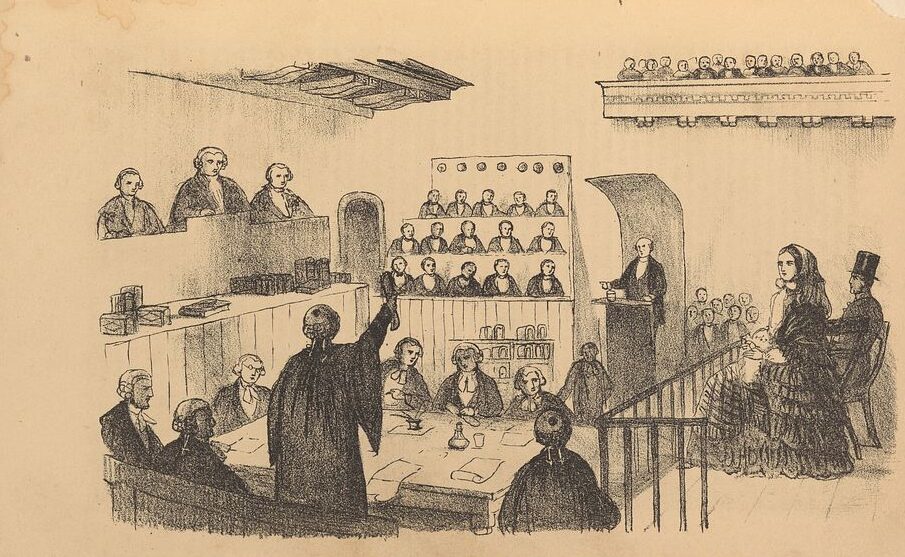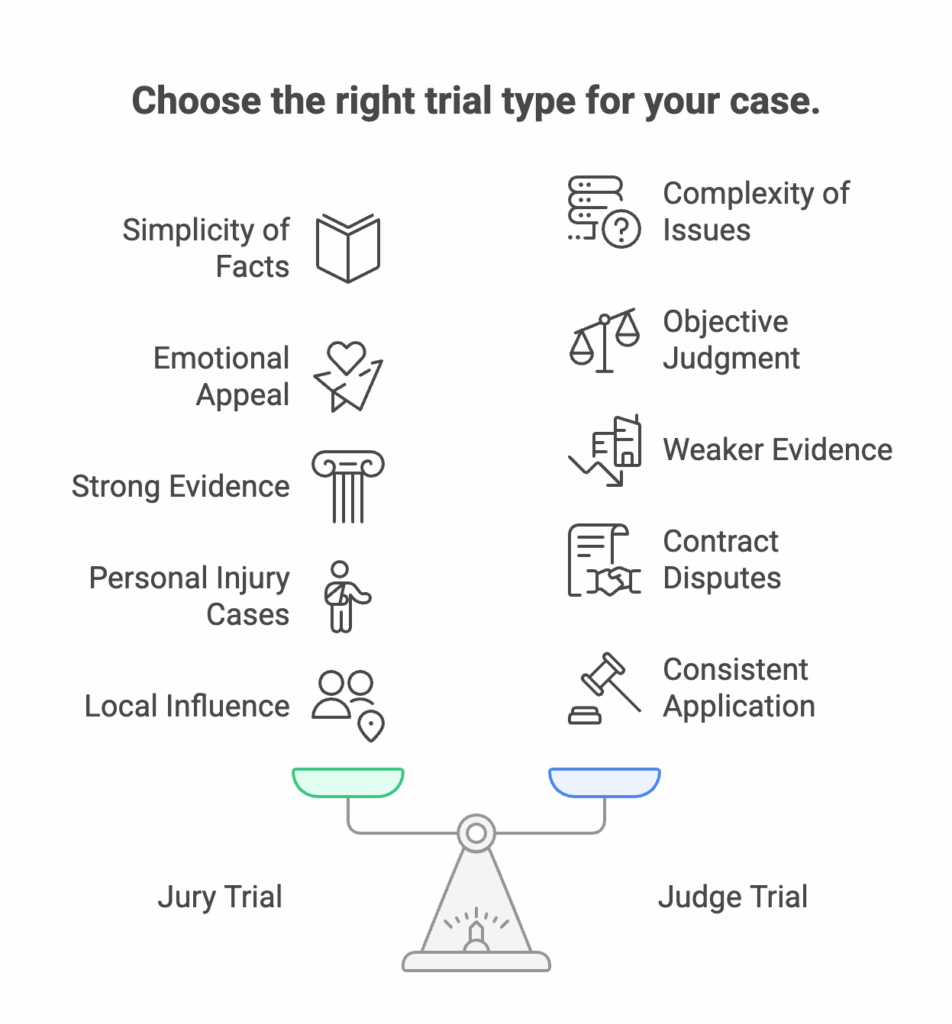Now Reading: Jury Trial vs. Judge Trial: 7 critical Differences + Which is Right For Your Case?
-
01
Jury Trial vs. Judge Trial: 7 critical Differences + Which is Right For Your Case?

Jury Trial vs. Judge Trial: 7 critical Differences + Which is Right For Your Case?
Going to court can be intimidating. One of the first things you’ll encounter is the decision of whether to have a jury trial or a judge trial (also known as a bench trial). But what is the real difference? Knowing the nuances can make a huge difference in your case. This guide will break down the key distinctions, helping you understand which path might be best for you.
Understanding the Key Players: Judge vs. Jury
Before we dive into the differences between a trial by jury and a bench trial, let’s clarify the roles of the players.
- The Judge: The judge is a legal expert appointed to preside over the court and apply the law. They are responsible for maintaining order, ruling on legal motions, and, in a judge trial, deciding the verdict.
- The Jury: A jury is a group of citizens, typically 6-12 people, randomly selected from the community. Their primary responsibility is to listen to the evidence presented and determine the facts of the case. They then apply those facts to the relevant law, as instructed by the judge, to reach a verdict.
Difference #1: Who Decides the Facts in a Trial?
This is the biggest difference. In a jury trial, the jury decides the facts. They weigh the evidence presented, assess the credibility of witnesses, and determine what actually happened. Think of them as fact-finders. In a judge trial, the judge fulfils both roles: interpreting the law and determining the facts.
Difference #2: The Role of Law vs. Fact in Different Types of Trials
While juries decide the facts, the judge always interprets and applies the law. In both types of trials, the judge is responsible for instructing the jury (or themselves in a bench trial) on the relevant legal principles. They’ll explain things like burden of proof, legal definitions, and applicable statutes. This distinction is important because some cases turn more on legal interpretation than factual disputes.
Difference #3: Cost & Time: Judge Trial vs. Jury Trial Expenses
Generally, judge trials are quicker and less expensive than jury trials. Jury trials involve a more lengthy jury selection process (voir dire), more complex procedural rules, and can require more witnesses. This all adds to the overall cost. Think about expert witness fees, attorney fees (which often increase due to the extra prep time), and court costs.
Difference #4-7: Other Crucial Differences Between Jury and Judge Trials
Let’s run through four more key distinctions:
- Difference #4: Jury Selection (Voir Dire): In a jury trial, the process of selecting jurors is called voir dire. Attorneys (or sometimes the judge) question potential jurors to identify any biases or conflicts of interest. This can be a lengthy process, taking days or even weeks in complex cases. There is no such process in a judge trial.
- Difference #5: Appeals Process: The appeals process differs slightly depending on the type of trial. If a jury reaches a verdict, an appeal is typically based on legal errors made by the judge. In a judge trial, the appeal can challenge both the judge’s interpretation of the law and their factual findings. Successfully appealing a judge’s factual finding, however, is very difficult, as appellate courts give considerable deference to the trial judge’s assessment.
- Difference #6: Complexity of Evidence: Jury trials often involve simplifying complex information to make it understandable for laypeople. Judges, with their legal training, may be better equipped to understand complex technical or scientific evidence. Evidence rules apply in both types of trials, and a judge will rule on evidentiary objections regardless.
- Difference #7: Perceived Bias (Real or Imagined): Some argue that juries are more susceptible to emotional appeals or biases, while judges are expected to be impartial. However, research shows judges are not immune to biases, even if they try to be objective. A 2020 study in the Journal of Empirical Legal Studies found that judges were more likely to rule in favour of defendants who shared their political affiliation. The perception of bias, regardless of its existence, can influence the decision of whether to opt for a jury or judge trial.
Jury Trial vs. Judge Trial: Which is Right For Your Case? (A Quick Guide)
So, which is right for your case? Consider these factors:
- Complexity of the Facts: If the facts are straightforward and easy to understand, a jury might be a good choice. A judge trial might be preferable if the case involves complex technical or legal issues.
- Emotional Appeal: Does your case have a strong emotional component? If so, a jury might be more sympathetic. However, if the emotions could cloud judgment, a judge might be better.
- Strength of Evidence: If your case relies on strong, clear evidence, a jury could be convinced. If your evidence is weaker or circumstantial, a judge might be more objective.
- Type of Case: Some types of cases tend to favour one type of trial over the other. For example, cases involving contract disputes or business litigation are often tried before a judge due to their complexity. Personal injury cases, on the other hand, are frequently tried before a jury. Criminal cases, where there’s public sentiment involved, might be better heard by a jury of peers.
- Local Jurisdiction: The prevailing attitudes and biases within the community where the trial is held can influence the outcome of a jury trial. A judge might provide a more consistent application of the law, irrespective of local sentiments.
Ultimately, the best decision depends on the specifics of your case and the advice of your attorney. This information is for guidance only and should not be considered legal advice. Consult with a qualified legal professional for advice tailored to your situation.











